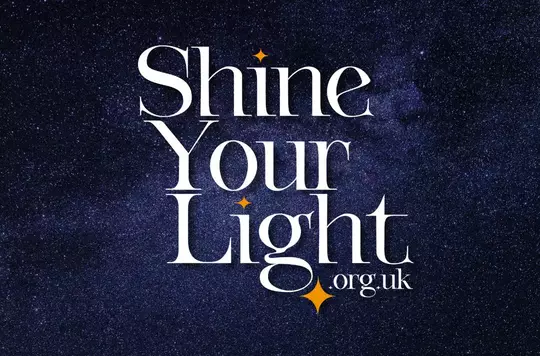7 December 2024
Isaiah 9: A light has dawned
Major David Alton
Major David Alton reminds us that God’s message brings hope.
Key text
As days become darker and colder, the heating is turned up and we put ‘the big light’ on because lesser lamps just aren’t enough. Immediately, the room is illuminated and we see more clearly. Our study passage illuminates the darkness, encouraging us to look to the dawning light of hope that is a central theme of Advent.
The book of Isaiah focuses on the holiness of God and his saving power. It includes warnings of judgement and promises of hope. Prophecies concerning the coming Messiah point to a light that’s dawning.
God’s people were ‘walking in darkness’ and living under the ‘shadow of death’ (v2 Berean Standard Bible). Hope was definitely in short supply. People of the northern kingdom of Israel had been taken into captivity and wicked King Ahaz ruled the kingdom of Judah. The Assyrians were throwing their weight around and the Babylonians were waiting to strike. International politics, national concerns, tax, exile, uncertainty and unease, it sounds very familiar. Yet through Isaiah’s prophecy God gives his people new hope.
Pause and reflect
- How are ‘walking in darkness’ and ‘the shadow of death’ manifested in today’s world?
- Consider occasions when you received light and hope from God. How did Christ bring his light to bear?
The radical hope of this passage is obscured by the cosy familiarity of verse 6.
God, through Isaiah, makes a proclamation in direct contradiction to the current experiences of his people – light while it’s dark, joy in the face of sorrow and peace when conflict is all around. How can this be?
When light is shone through a prism, it’s dispersed, showing the rainbow colours of the visible spectrum. The beauty and complexity of light is revealed. So, it is with Isaiah’s prophecy of dawning light that will change the nation’s perspective and increase their joy.
Isaiah encourages the people to see the joy they will experience through a prism (see v3). This joy is going to be like that of the harvest celebration, like that of treasures discovered and shared, like the deeply cherished joy remembered in the history of God’s people. Hence, Isaiah points to Gideon’s defeat of the Midianites (see Judges 6 to 8).
Isaiah elaborates further with images of what the light will bring for those who are oppressed, hurting, hopeless and fearful. For ‘the yoke that burdens them, the bar across their shoulders, the rod of their oppressor’ (v4) have all been shattered and conflict will cease (see v5). Not only does Isaiah reference the current situation in which the people find themselves, but his nuanced words also resonate with memories of slavery in Egypt.
But how is this light-bringing joy going to be delivered? Well, as a baby! In Isaiah’s time, some people thought that this announcement applied solely to a birth in the royal household.
However, God’s timescale was much greater. Our study passage – along with Isaiah 7:14 – is a type of Old Testament prophecy that appears to have a dual fulfilment. It points not only to something that will take place in the near future, but also to something even greater in the distant future. Isaiah was referencing events that would take place 700 years later.
When sung in Handel’s ‘Messiah’, verse 6 of our study passage feels like merely a prelude to the majestic description of the Messiah’s titles and yet this birth announcement says something of the humanity, deity and sovereignty of Christ. The child ‘born to us’ (v6 Common English Bible) of Bethlehem, the Nativity and the Incarnation. He comes in vulnerability as a baby, dwelling ‘among us’ (John 1:14) as one who is truly and properly man. The son given to us speaks of Christ’s divinity, the second person of the Trinity, the pre-existent Son of God who leaves glory and is given to us (see John 3:16). This givenness is also seen in Christ’s giving of himself in his teaching and ministry and in his relinquishing of himself on the cross for our salvation (see Philippians 2:7 and 8). The shouldering of government speaks of his eternal rule and reign over his Kingdom.
Pause and reflect
- Alongside thoughts of the eternal reign of Christ, consider the loving rule and reign of Christ over your life just now.
- What areas of your life do you need to open to the illuminating light of Christ?
Isaiah gave meaningful names to his sons (see Isaiah 7:3 and 8:1–3). However, he surpasses himself in verse 6 of our study passage with: ‘And he will be called Wonderful Counsellor, Mighty God, Everlasting Father, Prince of Peace.’ Unlike Matthew 1:21–23 and Luke 1:31, Isaiah is not naming the Messiah but describing aspects of his nature and mission. Through the child, light dawns for those needing guidance, for the weak, for those who feel alone and for those in search of peace and wellbeing.
Pause and reflect
- Which title or aspect of Christ’s character resonates with you at this moment? Why?
- Reflect on each title during Advent. Ask for a new insight into what they each mean for you.
Our passage concludes with a picture of the day when the light dawns in all its fullness, with the crucified, risen Jesus reigning over his eternal Kingdom (see v7). It’s a classic Advent theme: we look again at Christ’s coming to Bethlehem, but we also look to his return in majesty. That’s when the dawn will come in completeness and the glorious light of Christ will shine as never before.
Bible study by

Major David Alton
Corps Officer, Boscombe
Discover more

Salvationist introduces the theme of Advent and Christmas for 2024.

Ivan Radford reflects on 'O Little Town of Bethlehem' and the promise of God’s everlasting light.

Major Paul Robinson introduces a national ecumenical initiative to share the light this Christmas.

Lieut-Colonel Ann Hawkins reflects on the difference light brings to our world.
